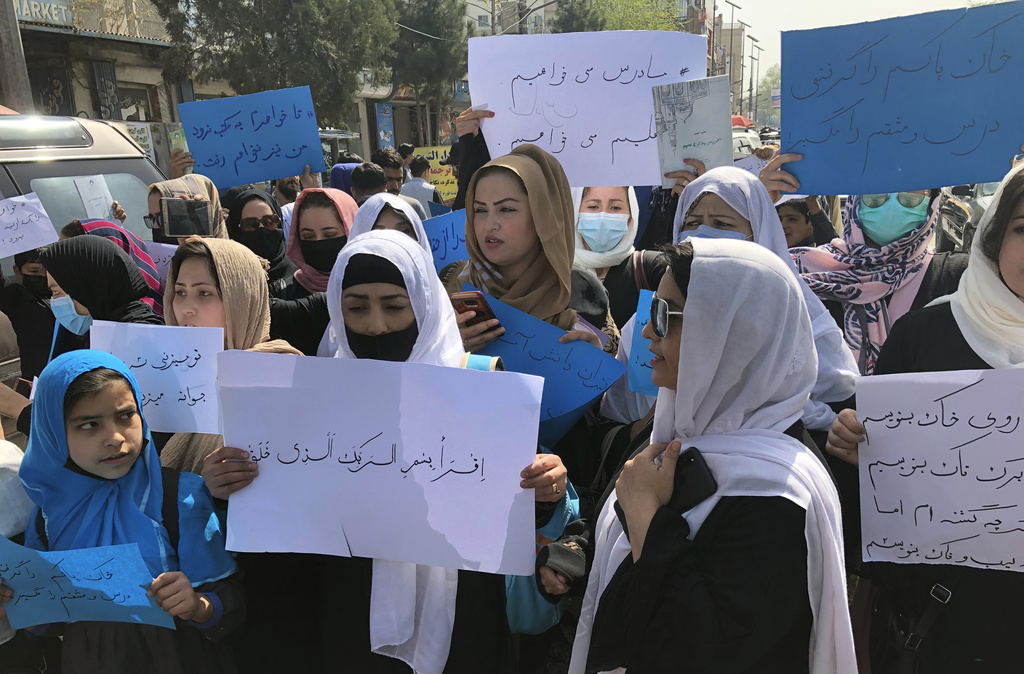ISLAMABAD (AP) — The United Nations has condemned the Taliban’s decision to bar Afghan female staffers from working at the agency, calling it an “unparalleled” violation of women’s rights. The announcement was made on Tuesday after the UN mission in the country expressed concern that its female staffers were prevented from reporting to work in eastern Nangarhar province.
Afghan women were already barred from working at national and international non-governmental organisations before the Taliban extended the ban to the UN. Several UN national female personnel have already experienced restrictions on their movements, including harassment, intimidation, and detention.
“The ban is unlawful under international law and cannot be accepted by the United Nations,” said the UN in a statement. The Taliban’s decision is “an unparalleled violation of women’s rights, a flagrant breach of humanitarian principles, and a breach of international rules,” it added. The UN has instructed all national staff, men and women, not to report to the office until further notice.
The Taliban’s decision drew condemnation from recognized organizations, with a joint statement signed by Save the Children, Norwegian Refugee Council, Danish Refugee Council, INTERSOS, Action Against Hunger, and World Vision urging the lifting of the ban on Afghan women aid workers that has been extended to UN agencies. “Without our female staff, the humanitarian community cannot effectively reach women and girls. With more than 28 million people in desperate need of aid to survive, this act will cut off people’s lifelines,” said the statement.

UNICEF Executive Director Catherine Russell said in a statement that Afghanistan is home to one of the world’s worst humanitarian crises. More than 28 million people, including over 15 million children, need humanitarian and protection assistance this year. “Yet despite this devastating situation, the de facto authorities have taken the unconscionable and confounding decision to ban Afghan women from working with the United Nations in Afghanistan, including UNICEF,” said Russell. Afghan women are the lifeblood of the humanitarian response, she added.
The Taliban have imposed harsh measures since taking over the country in 2021 as US and NATO forces were pulling out of Afghanistan after two decades of war. Girls are banned from education beyond sixth grade, women are barred from working, studying, traveling without a male companion, and even going to parks. Women must also cover themselves from head to toe.
The UN has a staff of about 3,900 in Afghanistan, including approximately 3,300 Afghans and 600 international personnel. The total also includes 600 Afghan women and 200 women from other countries. The UN deputy special representative for Afghanistan, Ramiz Alakbarov, said both male and female Afghan national staff have been asked to stay home until they can return to work under “normal conditions.” The new UN policy in the country will be revised depending on what sort of exemptions or operational environment can be negotiated. However, he said there is no scenario in which the UN would provide aid in the country.



















































